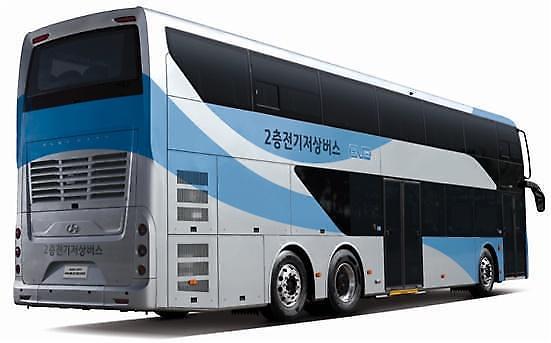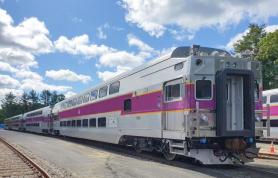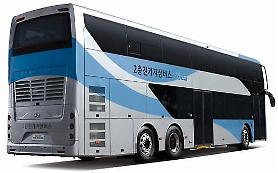
[Courtesy of the Ministry of Land, Infrastructure and Transport]
In 2019, about 1.3 million people commuted from Gimpo, a western satellite city of Seoul, and the western port city of Incheon to the capital city using public transportation including subway trains and buses. About 43 percent of the passengers use buses, which take about 90 minutes to travel to Seoul from Incheon.
Diesel-engine double-decker buses were first adopted in Seoul and its satellite cities in 2015 and electric double-decker buses were adopted in 2020. Double-deckers with 71 seats can carry about twice as many passengers as ordinary buses which have 45 seats.
The Metropolitan Transport Commission operated by the transport ministry said in a statement on January 28 that a total of 42.6 billion won ($35.5 million) will be injected in 2022 to improve the inter-city bus service including the additional deployment of electric double-decker buses. As a state research and development project, the transport ministry aims to increase the number of seats on intercity buses and reduce carbon emissions.
To provide a more convenient commute experience to workers, South Korea's transport ministry raised the intercity bus budget by 4.3 times since 2020, from 9.9 billion won ($8.2 million) to 42.6 billion won.
South Korea, with a renewable energy dependency rate of 4.8 percent in 2020, has accelerated the adoption of hydrogen and electric buses to achieve net-zero carbon dioxide emissions by 2050. As part of the eco-friendly project, Seoul will operate some 1,000 hydrogen buses and build 11 hydrogen fueling stations by 2025. In January 2021, Seoul also adopted 27 electric buses to replace diesel buses.
Copyright ⓒ Aju Press All rights reserved.




